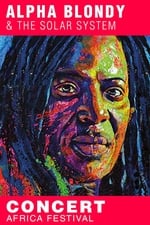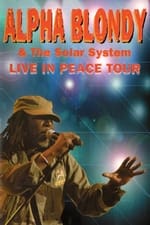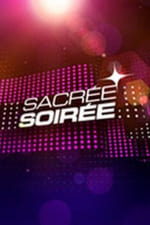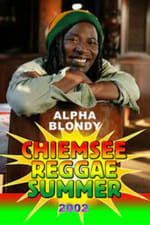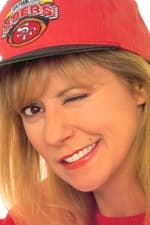Personal Info
Known For Acting
Known Credits 10
Gender Male
Birthday January 1, 1953 (71 years old)
Place of Birth Dimbokro, Ivory Coast
Also Known As
- Seydou Koné
Content Score
63
We're so close, yet so far.
Login to report an issue
Biography
Seydou Koné (born January 1, 1953 in Dimbokro), better known by his stage name Alpha Blondy, is an Ivorian reggae singer and international recording artist. Many of his songs are politically and socially motivated, and are mainly sung in his native language Dyula, French and English, though he occasionally uses other languages, for example, Arabic or Hebrew.
The first son of a family of eight children, Seydou Koné was raised by his grandmother in an environment described by him as "among elders", which was to have a big impact on his career. In 1962, Alpha Blondy joined his father in Odienné, where he spent ten years, attended Sainte Elisabeth High School, and was involved in the Ivory Coast students movement. He formed a band in high school, but this affected his schooling and he was expelled for poor attendance. His parents sent him to study English in Monrovia, the capital city of Liberia, in 1973. He spent thirteen months there and then moved to the United States to improve his English.
In 1974, Seydou moved to New York where he majored in English at Hunter College and the Columbia University American Language Program, pursuing a career in teaching. In New York, he was introduced to Rastafari and attended concerts by Jamaican artists including Burning Spear. Seydou was involved in multiple altercations before returning to the Ivory Coast where he encountered further trouble until he reunited with his childhood friend, Fulgence Kassi, who had become a noted television producer. This was the beginning of his career as a musician, and he adopted the alias "Alpha Blondy". After various TV shows for Kassi, Blondy recorded his first solo album in 1982, entitled Jah Glory. This album was to have enormous success and would become later a symbol of resistance because of the song "Brigadier Sabari," which documents his experience of being arrested in Abidjan in the 1980s and his subsequent mistreatment by the police. Alpha Blondy became a big star in Abidjan with his African twist of Reggae music, becoming in the eyes of his fans "the Bob Marley of Africa". Alpha Blondy is spiritual, political and positive just like Marley himself, and recorded a cover of Bob Marley's song "War". In order to reach more people with his message, he chose to sing in many languages: English; French; Baoulé, and his native language – Dioula. Later, he also brought new instrumentation to his brand of reggae such as the violin and cello.
Soon, the fame of Alpha Blondy spread to Europe. Following the success of an EP entitled Rasta Poué, he went to Paris in 1984 to make his second album, Cocody Rock, with the label Pathe Marconi. The "Bob Marley of Africa" travelled to the island of Jamaica and recorded the title track of this album with Marley's backing group, The Wailers. ...
Source: Article "Alpha Blondy" from Wikipedia in English, licensed under CC-BY-SA 3.0.
Seydou Koné (born January 1, 1953 in Dimbokro), better known by his stage name Alpha Blondy, is an Ivorian reggae singer and international recording artist. Many of his songs are politically and socially motivated, and are mainly sung in his native language Dyula, French and English, though he occasionally uses other languages, for example, Arabic or Hebrew.
The first son of a family of eight children, Seydou Koné was raised by his grandmother in an environment described by him as "among elders", which was to have a big impact on his career. In 1962, Alpha Blondy joined his father in Odienné, where he spent ten years, attended Sainte Elisabeth High School, and was involved in the Ivory Coast students movement. He formed a band in high school, but this affected his schooling and he was expelled for poor attendance. His parents sent him to study English in Monrovia, the capital city of Liberia, in 1973. He spent thirteen months there and then moved to the United States to improve his English.
In 1974, Seydou moved to New York where he majored in English at Hunter College and the Columbia University American Language Program, pursuing a career in teaching. In New York, he was introduced to Rastafari and attended concerts by Jamaican artists including Burning Spear. Seydou was involved in multiple altercations before returning to the Ivory Coast where he encountered further trouble until he reunited with his childhood friend, Fulgence Kassi, who had become a noted television producer. This was the beginning of his career as a musician, and he adopted the alias "Alpha Blondy". After various TV shows for Kassi, Blondy recorded his first solo album in 1982, entitled Jah Glory. This album was to have enormous success and would become later a symbol of resistance because of the song "Brigadier Sabari," which documents his experience of being arrested in Abidjan in the 1980s and his subsequent mistreatment by the police. Alpha Blondy became a big star in Abidjan with his African twist of Reggae music, becoming in the eyes of his fans "the Bob Marley of Africa". Alpha Blondy is spiritual, political and positive just like Marley himself, and recorded a cover of Bob Marley's song "War". In order to reach more people with his message, he chose to sing in many languages: English; French; Baoulé, and his native language – Dioula. Later, he also brought new instrumentation to his brand of reggae such as the violin and cello.
Soon, the fame of Alpha Blondy spread to Europe. Following the success of an EP entitled Rasta Poué, he went to Paris in 1984 to make his second album, Cocody Rock, with the label Pathe Marconi. The "Bob Marley of Africa" travelled to the island of Jamaica and recorded the title track of this album with Marley's backing group, The Wailers. ...
Source: Article "Alpha Blondy" from Wikipedia in English, licensed under CC-BY-SA 3.0.
Acting
|
|||||||||
|
|||||||||
|
|||||||||
|
|||||||||
|
|||||||||
|
|||||||||
|
|||||||||
|
